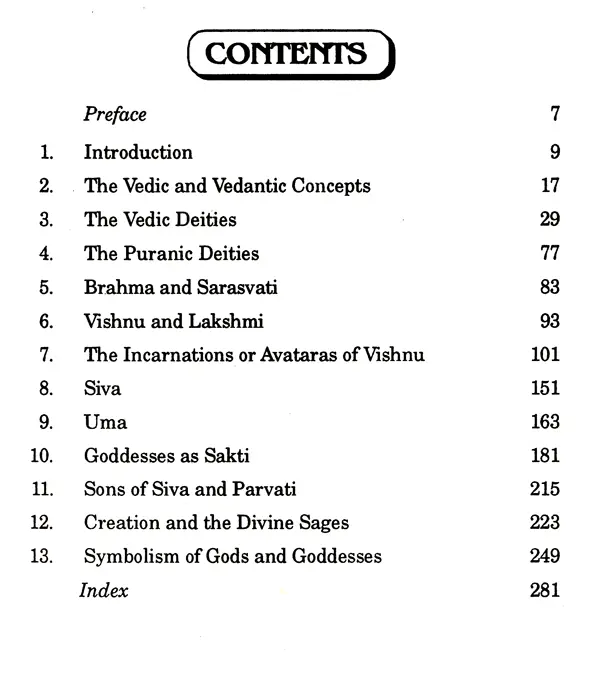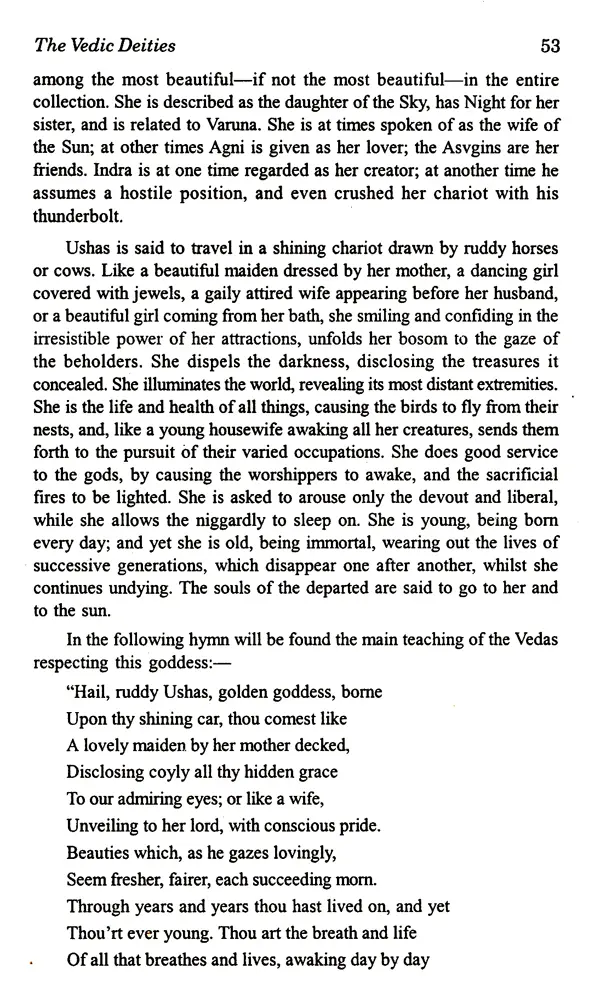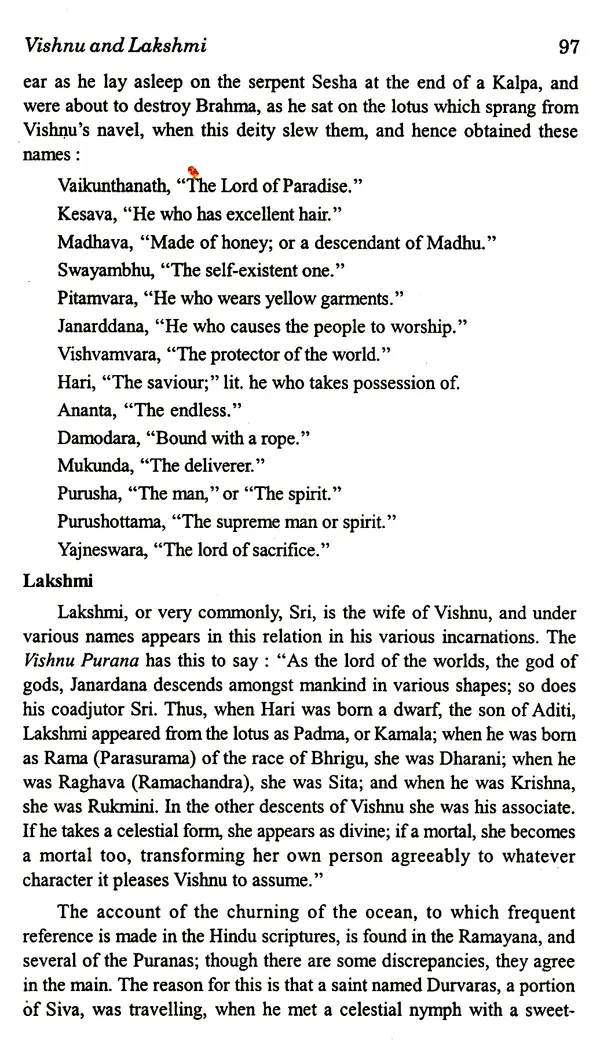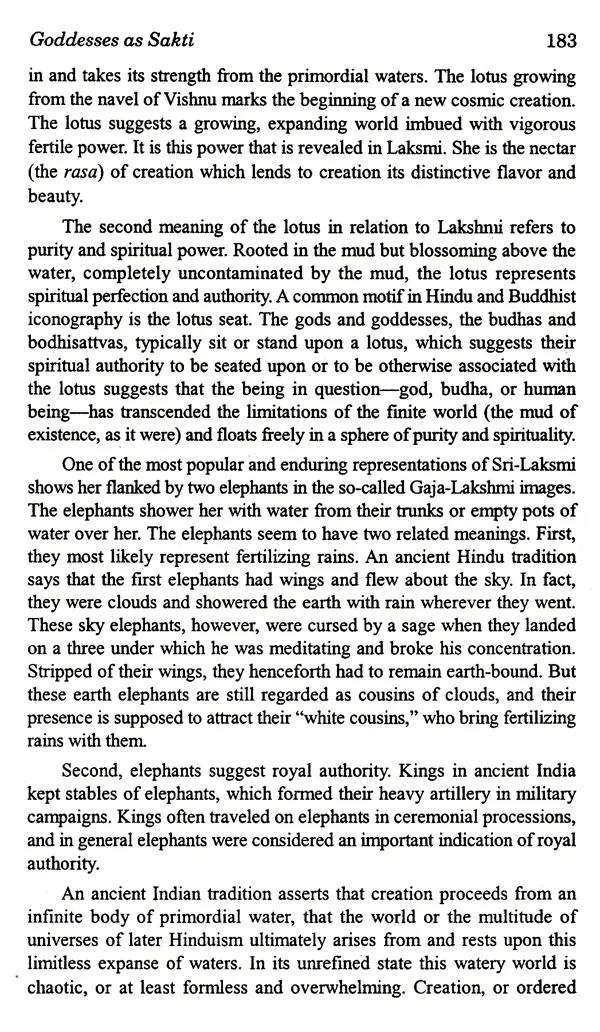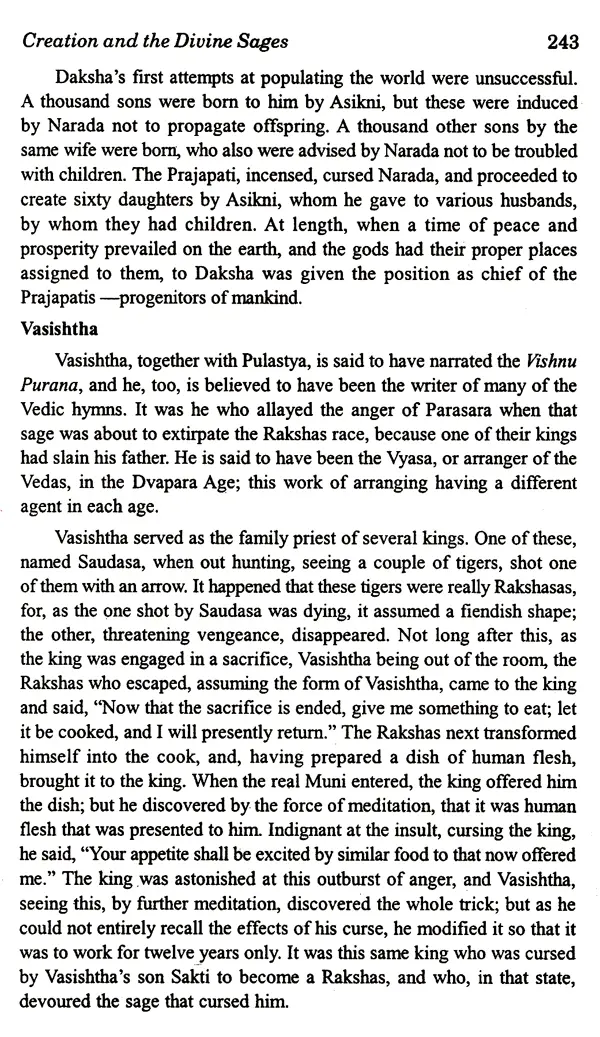
God and Goddesses in Hinduism
Book Specification
| Item Code: | UAM827 |
| Author: | Krishan Saigal |
| Publisher: | Kalpaz Publications |
| Language: | English |
| Edition: | 2007 |
| Pages: | 288 |
| Cover: | HARDCOVER |
| Other Details | 8.90 X 5.90 inch |
| Weight | 500 gm |
Book Description
As I grew up and studied the Vedas and the Upanishads I came to realize how those Puranic stories were really derived from the rich wisdom of the earlier scriptures. I felt that our younger generation needed to imbibe the ancient wisdom as reflected in these 'mythologies'.
There was a difficulty however. The stock of these mythologies was huge what with 18 Puranas, the voluminous Mahabharata and Ramayana. Fortunately there is a unifying thread running through all these mythologies. And the lesson of all was also the same how to lead a spiritual life in the world and to ultimately get liberated from the cycle of births and deaths.
I have tried to collect some typical mythologies but much has had to be omitted. This was inevitable in a short work like this. I have tried to give the spiritual development from the Vedas though the Upanishads to the Puranas. This is a vast work and has only been cursorily dealt with here. There are however many books available on the subject for those interested.
This work does not profess to give any new translations on the subject. The existing translation have been collected, edited and presented. The symbology of the most popular gods and goddesses is also given as well as the relations between the various deities.
I hope that the reader will not be disappointed. Those who want to delve deeper into the matter can consult the various English translations of the Ramayana, Mahabharata and the Puranas which are available.
The Hindu religion founded itself on the conceptions of a timeless, nameless and formless supreme. But it did not deny or abolish all intermediary forms, names, powers and personalities of the Eternal and the Infinite. The one Godhead is worshipped as the all, for all in the universe is he or made out of his being or his nature. But this concep! did not make it into a polytheism, for beyond the various gods Hinduism recognized the supra cosmic Eternal. So that the worshipper of many gods always knew that all the divinities are forms, names, personalities and powers of the one; his gods proceed from the one Purusha, and the goddesses are energies of the one divine Force.
Hindu religion is based on three basic ideas or rather three fundamentals of a high and wide spiritual experience. First is the idea of One Existence of the Veda to which the sages give different names the one without a second of the Upanishads who is all that is and beyond all that is. To discover, approach and enter into whatever kind or degree of unity with this Permanent, this Infinite, this Eternal is the summon bonus of spiritual experience.
The second basic idea is the manifold ways of man's approach to the Eternal and Infinite. The Infinity is full of many infinities and each of these infinities is itself the very Eternal. And here in the limitations of the cosmos God manifests and fulfils himself in the world in many ways, linking each as the way of the Eternal. For in each finite we can discover and though all things as his forms and symbols we can approach the Infinite; all cosmic powers all manifestations, all forces are forces of the one. The gods behind the workings of Nature are to be seen and adored as the names, personalities and powers of the one Godhead.
The Infinite creates and is Brahma; it preserves and is Vishnu; it destroys or takes to itself and is Siva. The supreme Energy beneficent in upholding and protection is the Mother of the worlds, Lakshmi or Durga. Or beneficent even in the mark of destruction it is Kali, the dark Mother. The one Godhead manifests in the forms of his qualities in various names and godheads. The God of divine love of the Vaishnavas, the God of the divine power of the Shakta’s appear as two different godheads; but in reality they are the are infinite Deity in different forms.
Between the highest unimaginable Existence and our material way of being the spiritual and psychic knowledge of the Hindus did not fix a gulf as between two unrelated entities. For Hinduism was aware of other psychological planes of consciousness and experience and the truths of these supra physical planes were as real to it as the outward truths of the physical experience.
The third idea of great consequence and as the base of Hinduism is the most dynamic for the inner spiritual life. It is that the Supreme can be approached through a universal consciousness and by piercing through all inner and outer Nature, and that he can be met by each individual soul in itself, in its own spiritual part, for there is something in it that is intimately one, or at least intimately related, with the one divine Essence. The essence of Hinduism is to aim at so growing and living that we can grow out of the Ignorance which veils His self-knowledge from our mind and life and become aware of the Divinity within us.
**Contents and Sample Pages**

